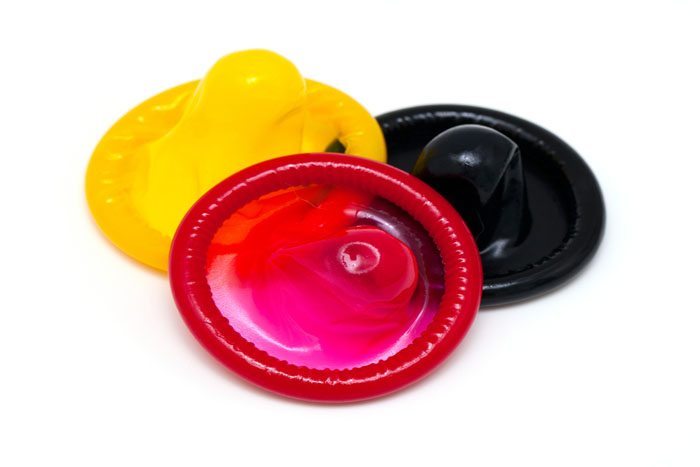Two Major Cities Make Condoms More Easily Available to Young People
Two big cities—Chicago and Philadelphia—are expanding and advertising programs that allow teens to get condoms at school and even at home.

As Rewire has reported in the past, condom availability programs have been credited with increasing the likelihood that sexually active teens use this important pregnancy- and disease-prevention method without increasing the likelihood that teens become sexually active. Though some adults are still wary of giving teens access to condoms or other forms of contraception, the American Academy of Pediatrics recently released an opinion saying that easy access to condoms is essential for teens, that communities should work to make condoms available in places where teens frequent, and that schools are a good place for condom availability programs. Two big cities—Chicago and Philadelphia—are following this advice by expanding and advertising programs that allow teens to get condoms at school and even at home.
At the start of this school year in September, the Chicago school district worked closely with the city’s health department to make condoms available at two public high schools. The program was part of a citywide initiative aimed at reducing teen pregnancy and birth rates which, though dropping, are higher than the national average. In fact, Chicago’s teen birth rate of 57 births to 1,000 young women between the ages of 15 and 19 is just over one-and-a-half times the national average (34 per 1,000) and more than twice that of New York City (23.6 per 1,000). The initiative, which is funded by a five-year, $20 million federal grant, also includes controversial ads featuring “pregnant” teenage boys (see Elizabeth Schroeder’s commentary for Rewire) and age-appropriate sexuality education starting in kindergarten, which is set to be implemented in 2016. Previously, sex education did not start until fifth grade.
City officials recently announced that they will expand the condom availability program to at least 24 high schools in the district for the 2014–15 school year. Though they expect some parents will be upset by the program, officials say it is necessary. Alderman Latasha Thomas, chairman of the city council’s education committee, told the Sun Times, “Some parents are gonna have problems with it—absolutely. I understand it. My kids are grown now. But, I remember those teenaged years. But, the reality is they’re having sexual intercourse and the stats say [35 percent] of the people who are having sexual intercourse in high school aren’t using any protection. None. They still have a process where they teach them to abstain. But, at the end of the day, they have to deal with the reality.”
Mayor Rahm Emanuel echoed these sentiments at an unrelated news conference, saying, “It’s an acknowledgement of what’s happening, whether you did that or not. It’s … an attempt to deal, from a health-care perspective, [with] both pregnancy as well as socially-transmitted diseases. I respect it as a pilot. But, I want everybody to understand that doesn’t mean you’re absolved—either as a parent or an adult—to talk to an adolescent about responsible behavior, respecting who you’re with and doing what’s right, not what’s convenient.”
A condom availability campaign in Philadelphia is reaching students even closer to home—their mailbox. Run by the city’s health department, Take Control Philly, launched in 2011 in an effort to bring down rates of sexually transmitted infections (STIs) among young people in the city. Philadelphians between the ages of 13 and 19 are eligible to receive free condoms by mail. In addition to the mail-order service, the department also makes condoms available at 180 sites across the city and at events throughout the year. The department has distributed 7.5 million condoms since the campaign launched.
To increase its reach, the campaign uses social media sites like Facebook. For example, in February, it ran a series of ads featuring the “worst Valentine’s ever” such as one from a genital wart saying “I’m stuck on you.” Matt Prior, who runs the campaign for the health department, told News Works that these kind of ads are very popular and consistently lead to a spike in mail-order condom requests: “So in three steps from seeing an ad or seeing a post, they can hit three buttons, enter some information, and they’re getting condoms in their hands. We mailed over 150,000 condoms that way.” He also credited the Facebook ads with increasing from 30 percent to 38 percent the percentage of mail orders that come from young women.
The department believes that making condoms available to teens is working. It claims that internal numbers show a 10 to 20 percent decrease in the case of chlamydia and gonorrhea among young people since the campaign began in 2011.
Condoms are highly effective at preventing pregnancy and remain the only method of contraception that also protects against sexually transmitted infections. Given the success of condom availability programs in increasing the use of this method without increasing rates of sexual behavior, we can only hope that more cities and towns across the country follow the example set by Chicago and Philadelphia.
